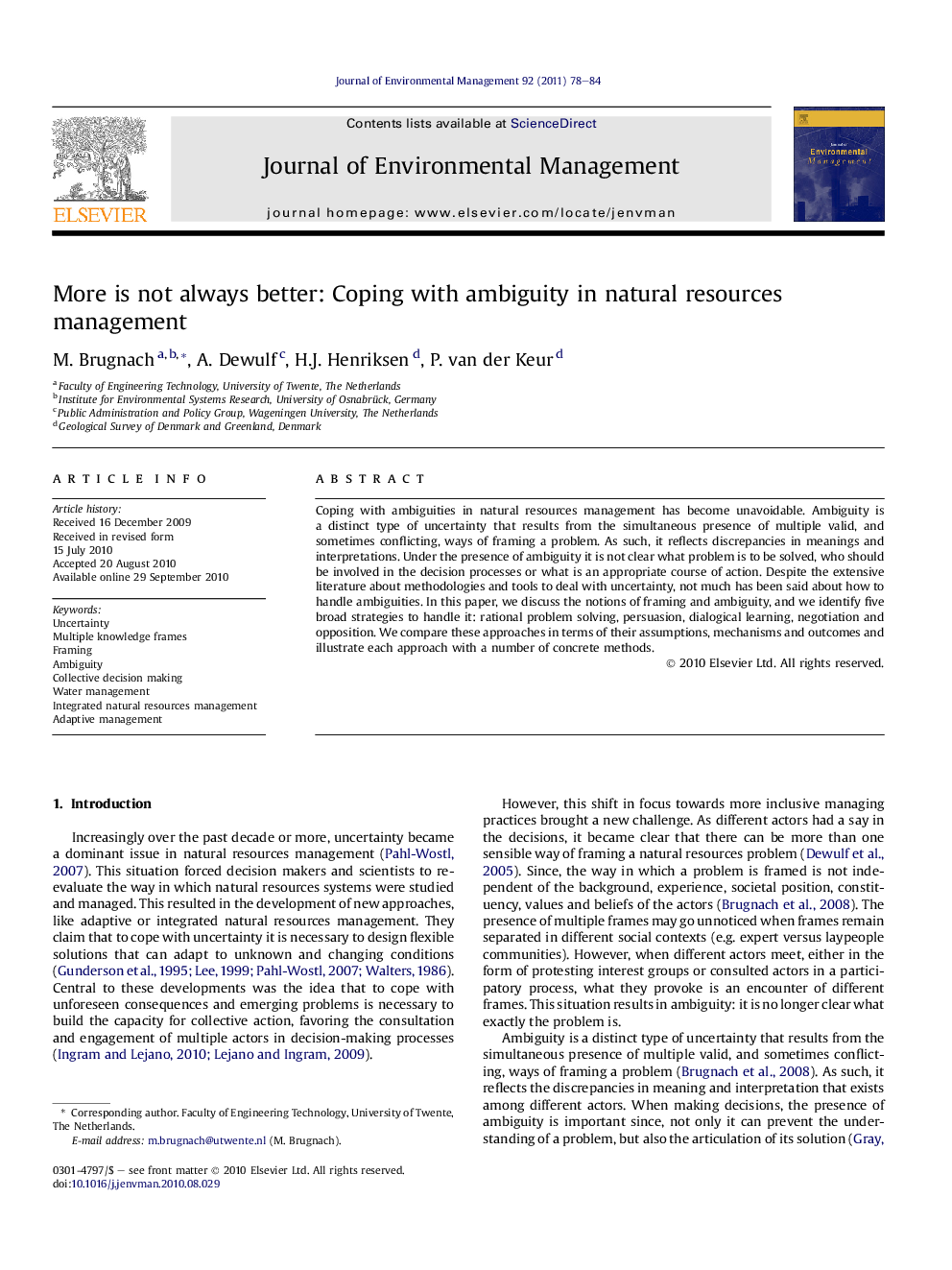| Article ID | Journal | Published Year | Pages | File Type |
|---|---|---|---|---|
| 1057497 | Journal of Environmental Management | 2011 | 7 Pages |
Coping with ambiguities in natural resources management has become unavoidable. Ambiguity is a distinct type of uncertainty that results from the simultaneous presence of multiple valid, and sometimes conflicting, ways of framing a problem. As such, it reflects discrepancies in meanings and interpretations. Under the presence of ambiguity it is not clear what problem is to be solved, who should be involved in the decision processes or what is an appropriate course of action. Despite the extensive literature about methodologies and tools to deal with uncertainty, not much has been said about how to handle ambiguities. In this paper, we discuss the notions of framing and ambiguity, and we identify five broad strategies to handle it: rational problem solving, persuasion, dialogical learning, negotiation and opposition. We compare these approaches in terms of their assumptions, mechanisms and outcomes and illustrate each approach with a number of concrete methods.
